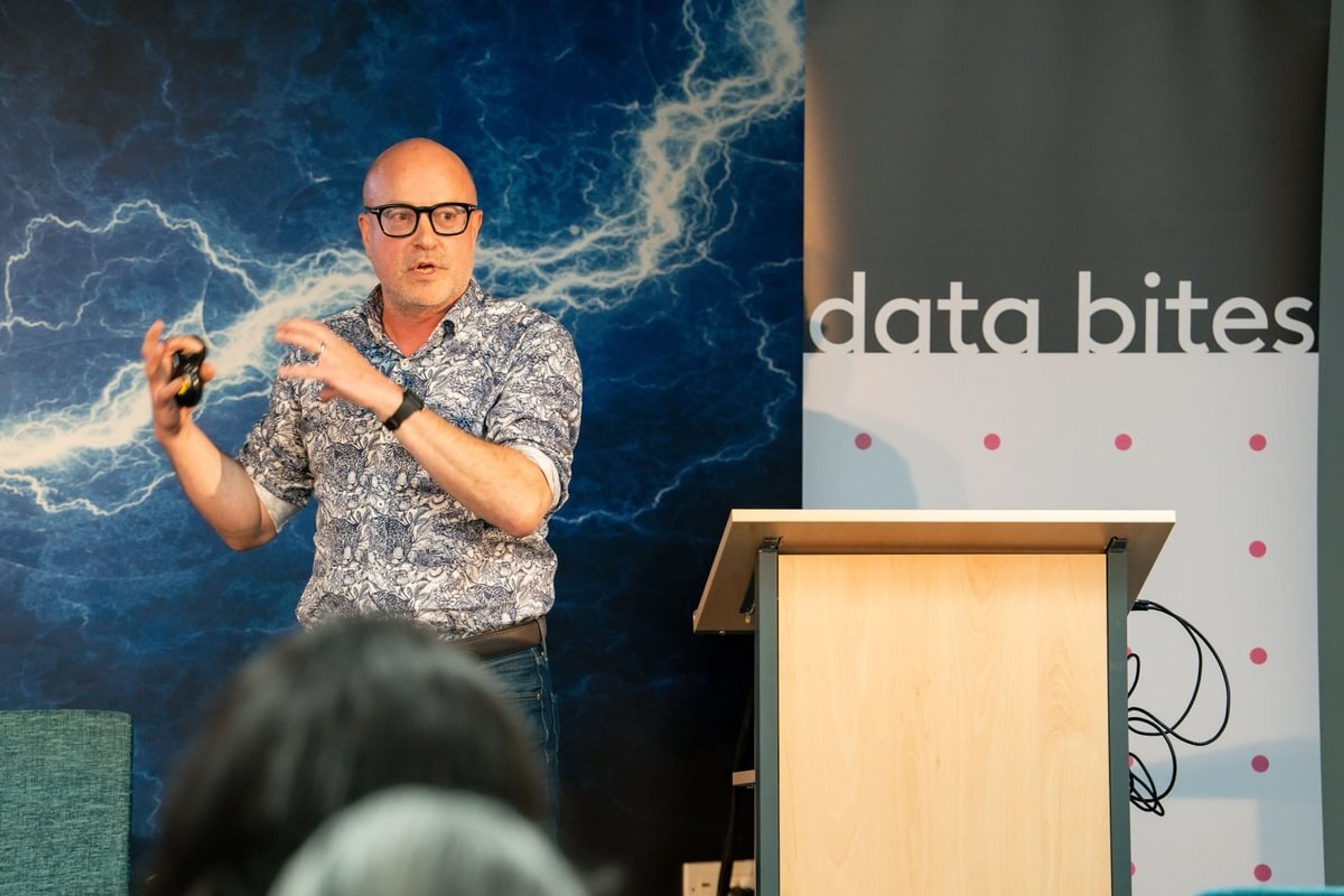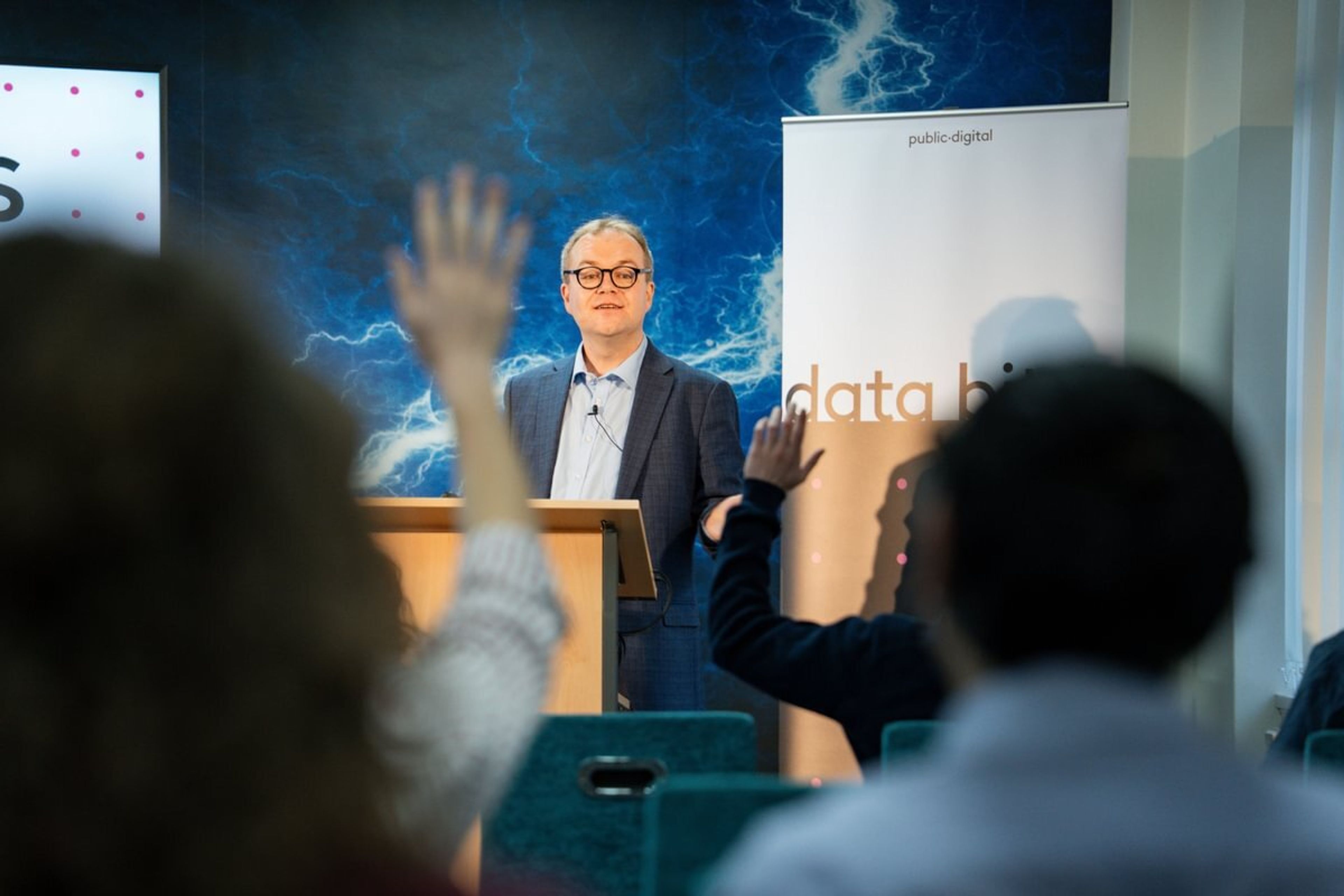Data Bites #55
Watch the live recording of our latest Data Bites edition or listen on Soundcloud
Data Bites returned for its 55th edition, covering elections, AI, 'Radical Nerds', and the power of curiosity.
This is the the sixth hosted by Public Digital, after 49 events at the Institute for Government – bringing together public sector thinkers, doers, and data nerds for an evening of insight and inspiration. After kicking off with a quick gallop through recent political happenings (spoiler: a lot of elections), we heard from four brilliant speakers tackling everything from AI in government to the limits of civic tech.
If you’ve not been before: Data Bites is a monthly event showcasing how data is used in and around the public sector. Four speakers, eight minutes each – because there are eight bits in a byte – followed by eight minutes of audience questions. In June, we’re going on the road for the first time, heading to Liverpool.
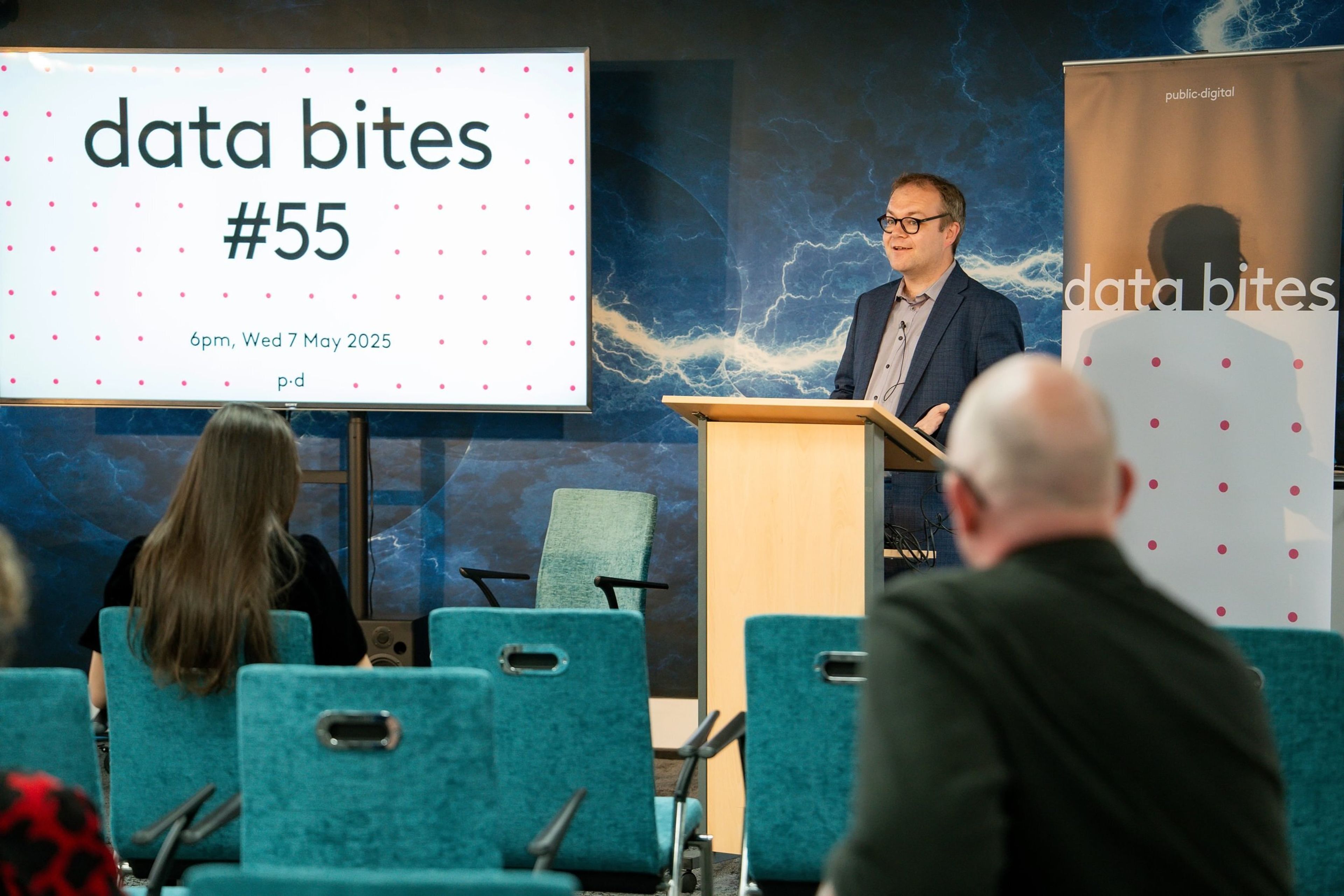
Laura Gilbert: Transforming the public sector with data and AI
Now at the Tony Blair Institute, Laura’s journey has taken her from particle physics to Downing Street, via medtech and a pandemic-era job with one main aim for the first six months: make an impact.
She discussed Philip Tetlock’s work on experts and prediction (and how they tend only to be slightly better than random), and how that helped her change the way she thought about and presented data to people. She talked about setting up the government’s Incubator for AI (i.AI), and that tools like Caddy can actually make government and other organisations more human and bring them closer to people. You can read more about it here.
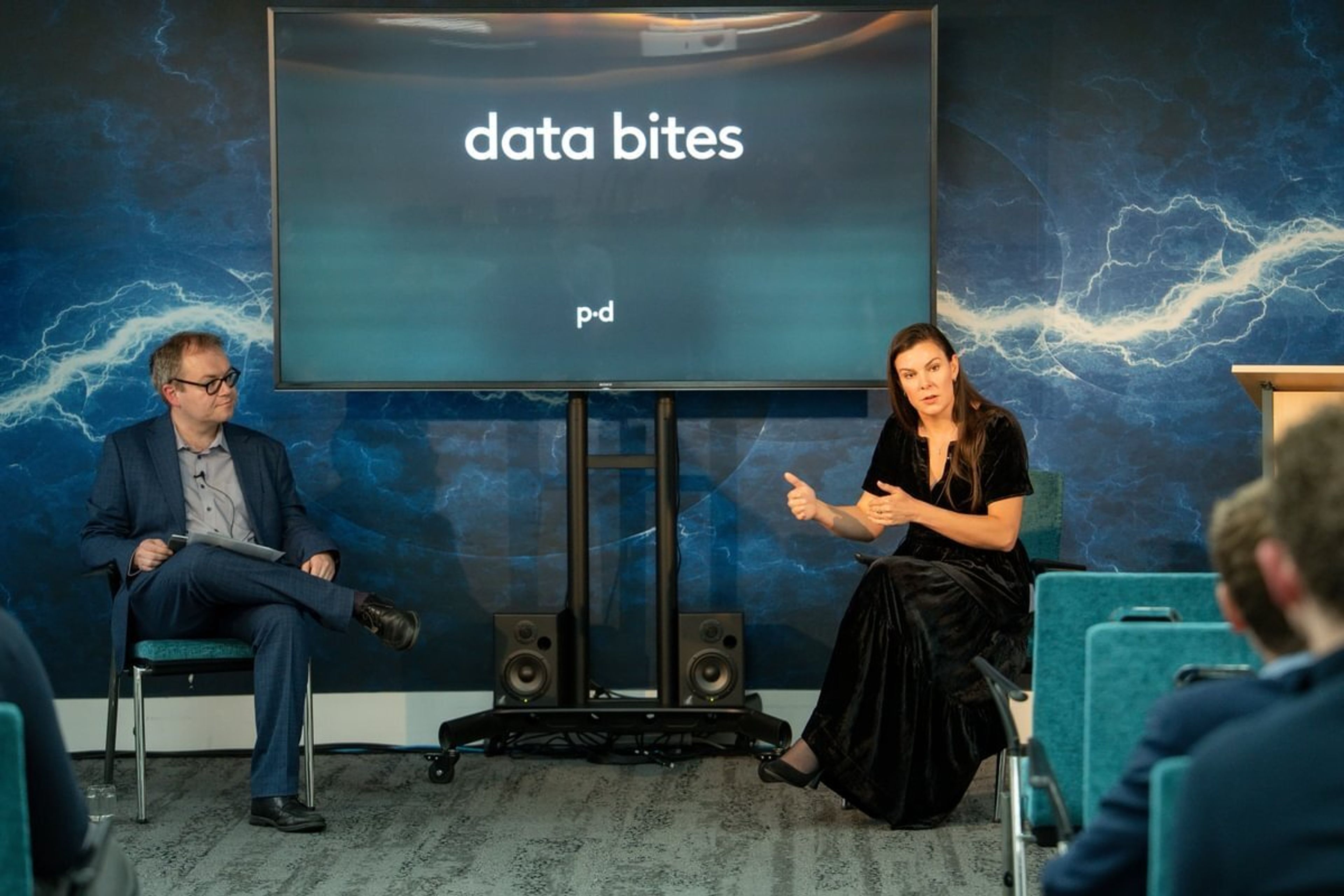
Ed Humpherson: Beyond mechanistic thinking
Ed, head of the Office for Statistics Regulation, challenged our assumptions about data. The main barrier to innovation, he explained, is the incurious belief that data are fixed objects produced by predictable, mechanistic systems.
Through three stories – past (the Scottish Census), present (road traffic injury data), and future (moving beyond a single milestone in the government’s health mission - wait times – to a much broader understanding of health inequalities) Ed showed how moving beyond a mechanistic mindset unlocks richer, more meaningful insights. Data gets powerful when we connect it across siloes and dare to ask better questions. You can read more about it here.

Alex Blandford: You can’t API your way out of politics
Alex – Public Digital consultant by day, Oxford anthropologist by night – offered a different kind of data: the kind you gather over pints and dinners. His research into civic technologists paints them as “radicalised nerds” trying to fix broken systems – the kind of people behind mySociety and Full Fact, who have both presented recently).
Alex presented a diagram of the knowledge ‘stack’ (working from ‘data’ at the bottom, through ‘information’ and ‘knowledge’ to ‘wisdom’ at the top) applied to civic tech, and argued that we need an argumentation layer.
Creating open data alone won’t change politics, he argued. We need to recognise that open data, civic tech, open government and digital government are all political positions. His message was clear: open data is political, and if we want to change things, we have to get political too. You can read more about it here.
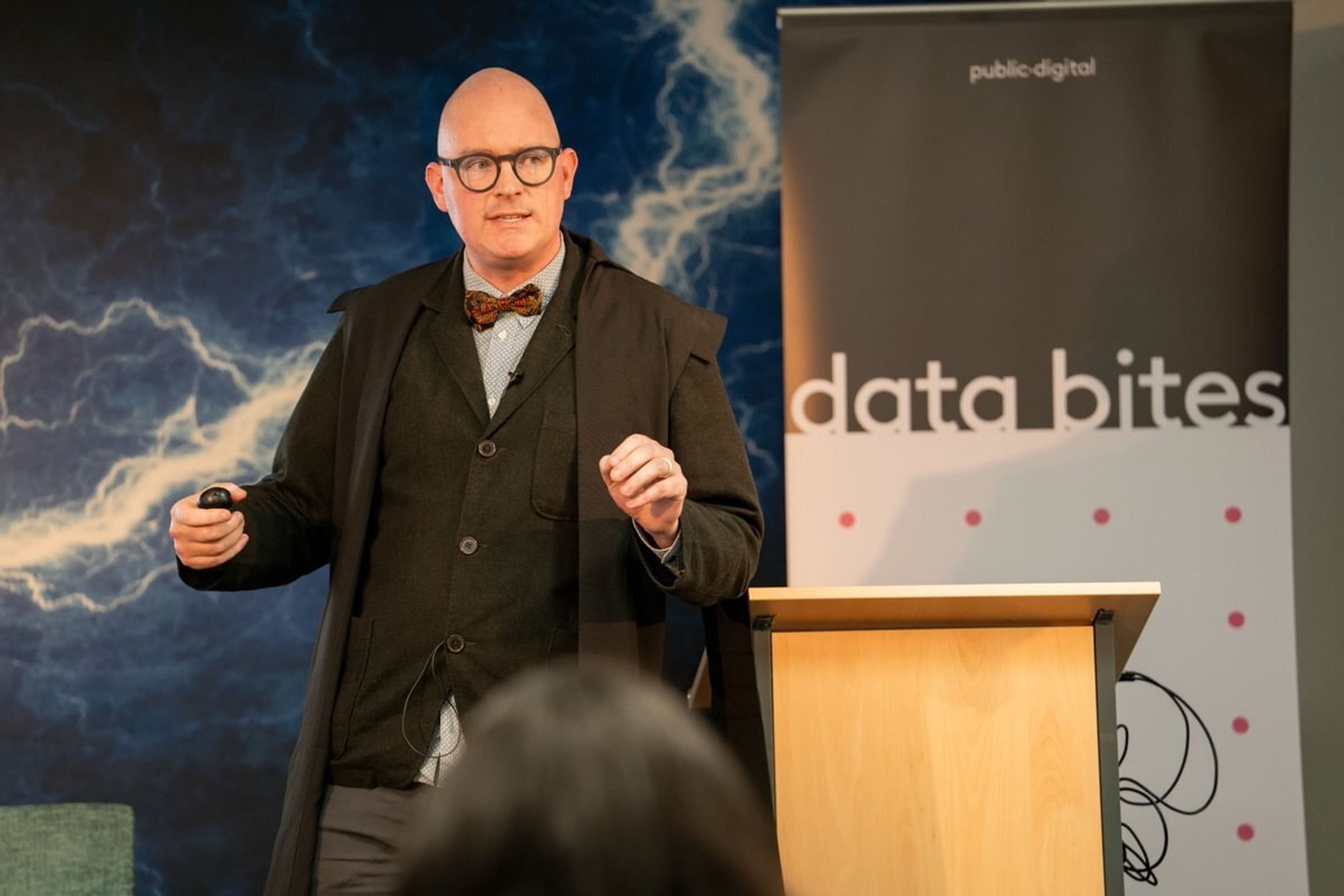
Tom Smith: Local AI, done right
Rounding out the evening was Tom Smith, Director of a newly created AI directorate at MHCLG, who highlighted the Prime Minister’s quote in response to the recent AI Opportunities Action Plan – ‘Artificial Intelligence is the defining opportunity of our generation, and core to delivering the government’s missions’.
He also explored reports from organisations including the Tony Blair Institute about savings in time and money that AI could help make. Pilots were starting to show that savings could be made, and he highlighted digital planning (presented at a previous Data Bites) as one exemplar. AI could also be used to help speed up planning consultation processes.
Tom made the case that while AI is the opportunity of our time, it’s not magic. It requires thoughtful implementation, trusted infrastructure, and yes, good data – but also policy, procurement power, and plenty of collaboration.
Want to speak at a future Data Bites? Or know someone who should?
Get in touch at [email protected] – we’re always looking for fresh voices and bold ideas.
